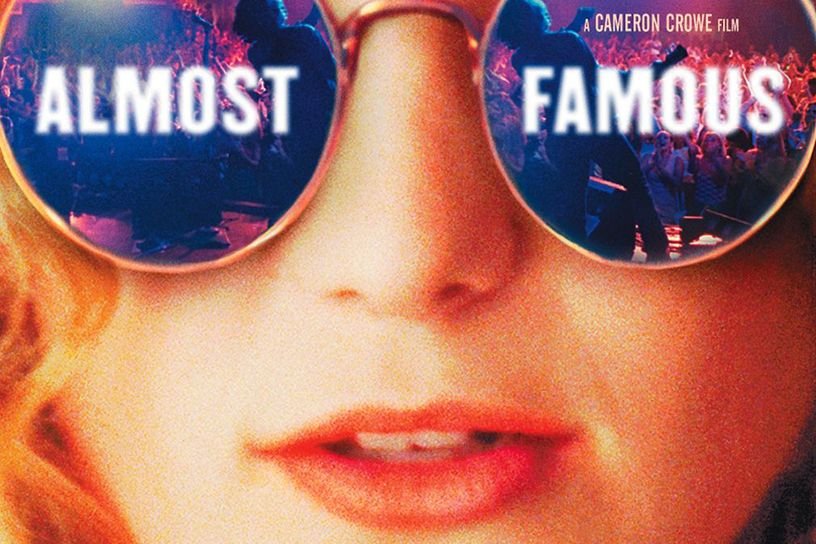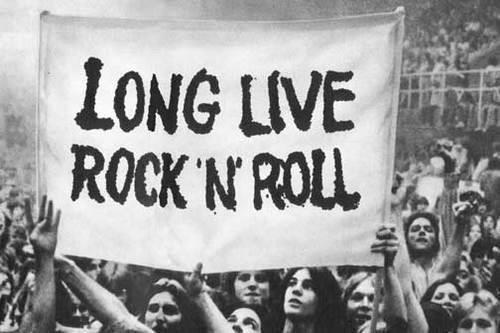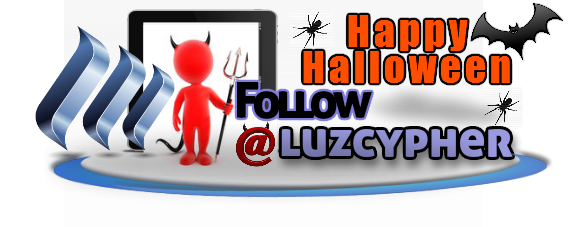Change is inevitable and in the music business, change happens quickly. Here's How I Booked 300 Shows Per Year For My Rock Band

When I was involved in the business of music in the nineties, Tower Records was the leading music outlet, Bill Graham the biggest concert promoter and radio play, or spins as they still call it today, was the ultimate goal to achieving success. After achieving some measure of success, I attributed it to luck, a little talent and an informed persistence.
Music vs Business
This post is about how I was able to get my band 200 gigs a year and later expanded that to 300 shows a year, but first I want to share with you something that helped me tremendously to turn my hobby, playing music, into a business.
Attending UCLA and majoring in Music Business helped, but more specifically it was something one of my instructors told me that forever stuck with me, even beyond the music world.
Believing he was qualified, I took his advice to heart. His name was Frank Deleo. He was my Artist Management instructor at UCLA and at that time he only had one client, Michael Jackson. Yes, that Michael Jackson. I think he added Taylor Dayne to his client list later on. (I did eventually get to meet Michael Jackson, not through Frank, but I'll save that for another post.)
Figuring Frank probably knew what he was talking about, I made a record of everything he said in my notes and thirstily drank every word. I was getting my money's worth for my education in Frank's class, that's for sure. (Speaking of thirsty and records, have you seen @thirstyrecords on Steemit? I like what they're doing.)
Frank looks like a well dressed Tony Soprano, like someone you wouldn't want to mess with, and in his gangsterish, Philly accent he said this,
"There's music, and then there's business. They are not the same things and should be treated differently."
It made perfect sense to me as I scribbled every word out of his mouth into my notebook, but I would later come to appreciate that simple statement more in the years to follow.
Now I tell you this story because musicians, talented as they are, are often not the best business-minded people, especially when it comes to their music, their baby, their creativity. To get into the music business you have to be able to separate the two and remain detached from your music while doing the business part of the equation. That is easier said then done for many and that's why we have managers.
Struggling Artists
The struggle for many artists in getting good management is they need something for a manager worth managing first or they will not be interested in managing you, which means unless you get really lucky and a good manager falls in love with your music, you'll have to create some business worth managing all on your own. It's a catch 22, but can be addressed in a business-like manner to get over that hurdle.
Today it's easier in a lot of ways to get exposure and build a following with the Internet and social media, but also harder as there are more songs and groups competing for the same venues and discretionary income. Today, it's vitally important to grow an audience for your music, a customer base if you will, of loyal fans.
I mentioned earlier that the music business changes very fast, but some things never change. A pretested band will attract more opportunity than an untested band, a fact that will always remain true.
Pretested is a marketing term to describe pre-market research, based on consumer reaction to your product and gives you the most accurate feedback on how you compare to competitors. Here's the thing. Nobody is going to throw money at your band unless they think they can make money.
Even huge companies like Pepsi pretests a product before rolling it out nation or world-wide. When they first came out with Pepsi One, they had the ability to roll in out across the country, but first they tested it in a few counties in Oregon, made adjustments based on customer feedback, then tried it in a few counties in California and continued this process until sales grew enough to qualify rolling it out nationwide. It was pretested.
Now if you can get your band pretested in a certain demographic, you'll be in a much better position to negotiate good management and a good contract.
Make Them Want More
Musicians make the common mistake of thinking that playing as much as possible as often as possible will get them the exposure they need to build a crowd. It's true in the very beginning of an artist's path, but it's a mistake because if you're playing everywhere in your town or region, then people can see you anytime they want, instead of everyone coming to see you in one place at one time, the only time you're playing, which by definition is a crowd of people.
We never played anywhere more then once a month tops, and we promoted the hell out of that one gig in each town to ensure a crowd showed up. It has more impact with the venue, the fans and any press or radio that happened to be there because we invited them.
Excitement grows in a crowd and it's the perfect time to collect email addresses from the people that came to see you. Those emails will become an asset you can leverage as you grow your business.
Crowds also attract money and when people are making money because of the crowd you attracted, they're eager to have you return. Don't go back to that venue until a minimum of one month passes or you will not get the same crowd you had last time and you'll lose momentum with your audience and the venue owners.
Perception is everything in the music business. Here's little tip that worked well for us and will still work. We used to ask when the venue put up their weekly post for their shows, Usually on Thursday, they would put up weekly posters for the following week.
When we had a gig booked, we would put up posters all over town a week before the gig on Friday, after the venue put up their posters. We put the name of our band, the name of the venue and the venue's phone number, but no date on it.
All week long the club would get calls asking when we were playing. The day before they put their next week's posters up, we would put up new posters that included the date so the person putting up the venue's poster wouldn't know that there was a poster with no date on it. In the club owner's mind, all they knew was they're getting a lot of calls asking about us. Perception is everything.
So you have a crowd showing up to see you once a month. The venue is happy, the crowd is happy. What next? You can't wait around all month for 30 days to pass so you have to go out on the road and start the same process all over again, right? No.

The next thing to do is find a venue in the next town over from your town and start the whole process over again. Build it up, once a month, promoting the hell out of it, always collecting emails until you have another venue you can pack the house in.
When I say pack the house, I mean record-breaking for that venue pack-the-house. The club owner is begging you for another night and willing to cancel other bookings to get you. He or she is making more money if you are playing there. That's the key.
Then you repeat this process until you have 4 venues in 4 different cities you can fill, promote, and play per month, 1 per week. This would keep most people very busy but luckily, LuzCypher never sleeps.
Got Press?
Now what? Record breaking, pack the house performances are news. Get it in print. Document it in the local paper. Create press releases. Here's a little known fact that most musicians have missed. You can write your own press releases. It's common to write and submit your own press release about your own music.
Yes, it would be better to have someone from the local paper write about you and we did invite them, but they're busy and we're nobody at the moment.
Don't wait. Do it yourself. The entire story with photos and all and submit them to the papers. This is a big piece of the puzzle to building a music career.
In fact, I used to pay a guy $400 a week to do that for us full time once I was too busy to do it myself, but at first it was all me. It feels a bit strange writing about yourself in the third person, but get over it, it's only your career.
Put on your reporter hat and do the job so completely that it's easy for an editor to just pop it into the paper. You basically did their job for them. They may not use it the first time you submit a press release, so submit it again each month you play in that town, writing a new story each time with new photos. Eventually, they will need to fill a page right when you submitted a press release and you'll get some press.
Colleges And Hairdressers
Next we visited colleges and hairdressers. I can hear you questioning, hairdressers? Yep. Hairdressers are some of the most plugged in people in a local city to what's going on about town. And they love to gossip.
No offense to hairdressers. I love them. My mother was a professional hairdresser and I grew up around them and they love to talk about musicians that are playing locally. Give them something to talk about. Give them backstage passes, t-shirts, CD's and VIP treatment. Anything, but let them cut my hair.
For added effect, we would drop by hair salons and share some secrets that they had to promise they wouldn't tell a soul. Some secret after-hours party or band related news and before long the whole town would know. It was just too good to keep secret. I don't know why this worked so well to draw people in to see us, but it did. Maybe they just wanted to cut our hair.
The afternoon of the gig, we would try to do a free, 20-30 minute set at the local college at lunch time. A quick set, long enough to hand out free tickets to the cutest girls we could find, but short enough to get people to come see the show that night.

The club owner didn't care if you gave out tickets because the extra alcohol sales more than makes up for the loss at the door, but the door man did care because they usually get a percentage of the cover fee. So I paid them their percentage for every free ticket I gave away and since almost all of the free tickets were redeemed by cute girls, well, they got over it pretty quick.
Having the venue packed with cute girls, or guys is always a good thing. People will come see you just because they know there will be some cuties there.
So now you got clubs happy to book you, people eager to show up at your shows, a growing email list, local press coverage and the local college campus and hairdressers talking about you. You can do this 4 times a month in 4 different location all within a days drive. What next?
I Scratch Your Back, You Scratch Mine
Find bands within a 12-hour drive that are in the same position as you. They can pack the house near them, they have a mailing list as big or bigger than yours, they have press coverage there, they are ready to expand.
Then go see them on their turf to confirm they can do all of that and when you are sure, collaborate to open for each others bands. You open for them on their turf, so to speak and they open for you on your turf. But you don't just go play the gig.
You promote the hell out of it just like the first time you started and you collect emails and develop press releases and before long, you'll be able to pack the house there all on your own. You're basically leveraging the work they did there growing their crowd into a crowd of your own and they're doing the same thing with your home town crowd. This is how 4 sold our shows a month turns into 8 sold out shows, still never playing one city more than once per month.
This will keep most bands busy especially if music is not your full time gig, but we wanted to be a band that played every night. So we did. Even if we didn't have a gig, we played our show every night until, six months into doing that, we sounded tight. Like a band that played every night.
Join NACA
The next step for us was becoming a member of NACA, or The National Association for Campus Activities. Every collage has a budget to spend on entertainment each year and they are looking for talent to book for their events. We attended one of their regional conventions.
This costs money but the payoff is a regional or, if everything goes right, a national tour. Here's how it works.
Before going to one of their national conventions you have to sound tight. You have to have your act together because you'll only get one shot to make this work.
Each year all the program directors who book talent for their respective colleges meet at their regional convention. You can book a booth at these conventions, but if you plan it a year ahead of time, you could get booked to play the convention, which is much better.
Get these people on your list and keep them informed of your band's successes. Try to get the gig of playing at the convention and have all your promotional material available to give out. They used to want a video brochure to bring back to their college campuses, but it's probably done on a DVD format these days.
A DVD promo is a DVD that has a few songs of the band in the studio, a live performance and press clippings and photos ready for press releases all on a DVD.
If you get the gig, you'll only need to play about three songs and you'll need to knock their socks off. These are all buyers of talent so you need to impress them with your show. If you can do that, then a buying frenzy will happen right there after your show and before you know it, you'll have a tour.
Here's how it breaks down.
You have a price list for booking your show anywhere in that region. Remember, this is a regional convention. National conventions come later.
So let's say your show can be booked anywhere in that region for $10,000. Seems like a high price, right? Here's were the bidding comes in.
- Any 2 colleges that book you in a 3 day period will pay $9,500 each.
- Any 3 colleges that book you in a 5 day period will pay $9,000 each.
- Any 5 colleges that book you in a 7 day period will pay $8,500 each.
- Any 7 colleges that book you in a 11 day period will pay $8,000 each.
- Any 10 colleges that book you in a 15 day period will pay $7,500 each.
- Any 13 colleges that book you in a 18 day period will pay $7,000 each.
- Any 18 colleges that book you in a 21 day period will pay $6,500 each.
- Any 21 colleges that book you in a 28 day period will pay $5,500 each.
See where this is going?
If you blew them out of the water at this show and you have all the promotional material ready for them to use to promote you at their campuses, a funny thing starts to happen. The program directors at the convention will convince other directors to book you so their price will come down and it will be easier for them to recoup your booking fee.
The price per booking may come down to $1,000-2,000 a show, but you'll have 30-40 shows booked and as many college campuses promoting your act. They can justify spending the money if they know you'll fill a house and they already have relationships with their local radio stations and newspapers. You already have the photos and new stories for them to just plug into their local papers and radio stations.
You'll get tons of press this way and a lot of radio play because you did their job for them and they want to make their money back.
Don't Stop Believing
Next step is to give CD's, show tickets and t-shirts to all the radio stations in each city so they will have something to give away. Radio stations love to give away stuff.
When we did this, we would show up to cities we have never been to before and a crowd of people were there to see us, the local newspapers were writing about us and the radio was playing us. It's amazing.
Then we would go back to square one with each city. Collect email addresses of excited fans and inform them of upcoming shows. Invite writers and radio staff to the shows. Have stuff to sell at your shows, CD's, T-shirts, etc.
There are many little details to making this work like a machine, but hopefully, you get the idea. The music business is a business and should be treated as a business.
The next step is to keep going to NACA regional conventions building on the momentum from the previous tours until you have a national tour.
We got to meet some cool acts on that tour circuit and some cool comedians too like Kris Rock and Carrot Top, Green Day and Counting Crows.
We ended up charting on college radio on the top 10 in 35 states and had all the work we could handle.
Eventually, this built enough momentum to attract good management. Managers start pitching you instead of you pitching them and that's where you want to be from a negotiating perspective.
We made a deal with Aynsley Dunbar to manage us. He was the drummer in a band called Journey and knows the music business very well. He could get people to show up at our shows that wouldn't even return my phone calls before.
This isn't the only way to get a tour going for your act, but it's how we did it. Hope you enjoyed reading my story and I wish you the best of luck.

